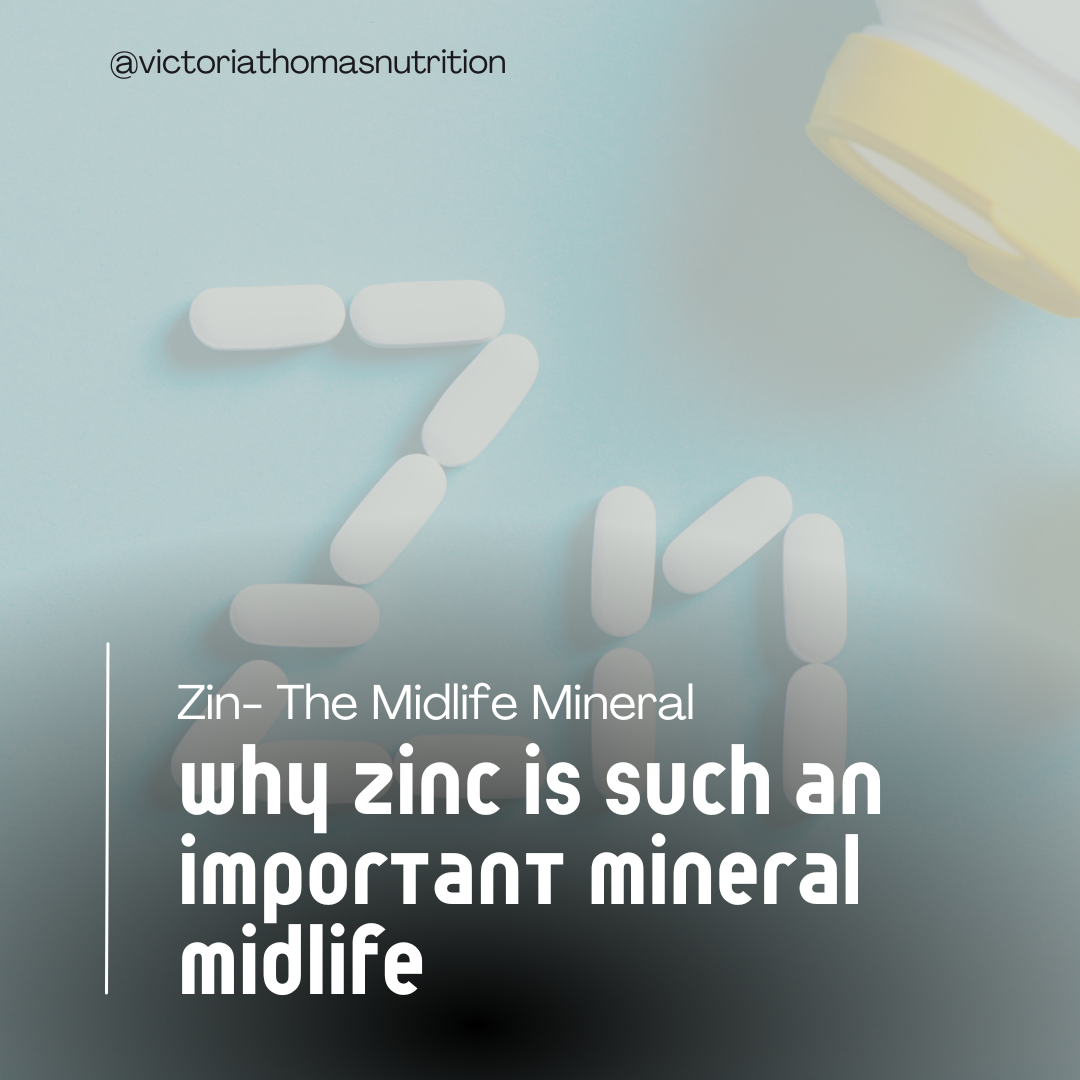Why Zinc is Such An Important Mineral in Midlife

Zinc – the Midlife Mineral
Zinc is one of those key minerals that plays a crucial role in various bodily functions yet despite its importance, many people just simply don’t get enough from their diets. This can lead to a deficiency that can quite simply sap your energy and negatively impact overall good health. It’s estimated that about a quarter of the world’s population is simply not getting enough.
Some key benefits of Zinc (although like it’s friend Magnesium, it is responsible for literally hundreds of processes in the body) are:
- Immune Support: Helps your immune system fight off infections and viruses.
- Wound Healing: Speeds up tissue repair and reduces inflammation.
- Hormone Balance: Supports reproductive health and hormone production.
- Skin Health: Assists in collagen formation, promoting clearer and healthier skin.
- Cognitive Function: Plays a role in memory and mood regulation.
- Cancer protective: Some evidence to suggest reduces risk of oesophageal, bladder, skin, head and neck. Protective against breast and prostate
Why We Could Be Deficient in Zinc:
Several lifestyle factors and dietary bad habits that we find ourselves sliding into as we hit the rollercoaster of the midlife years can deplete the body's zinc levels:
- Alcohol consumption: Alcohol reduces zinc absorption. It also causes us to excrete more as we pee
- High sugar intake: Diets high in sugar can block zinc absorption.
- Vegetarian or vegan Diets: Plant-based foods often contain phytates, which bind to zinc and reduce absorption.
- Stress: Chronic or prolonged stress increases the body's need for zinc so we end up using more than we actually ingest.
- Reliance on Processed foods: These often lack the essential nutrients, including zinc, that whole foods provide.
- Some medications: reliance on over-the-counter painkillers, antacids for indigestion and antibiotics
- Leaky gut or poor gut health: these can both impact how Zinc is absorbed then used around the body
Classic Signs of Zinc Deficiency:
- Frequent Infections: Colds, flus, or recurring illnesses.
- Hair Loss: Thinning, shedding or very dry hair
- Poor Wound Healing: Cuts and scrapes that heal slowly or inefficiently
- Loss of Taste or Smell: this is a classic sign of Zinc deficiency
- Brain Fog or Low Mood: Difficulty focusing or persistent low mood.
- Spots on nails: seen as small white patches or classic spots
- Skin rashes or persistant eczema
If you notice any of the symptoms listed above you may well be suffering from a zinc deficiency so you will need to be intentional about the foods you eat to drastically increase zinc intake. You should also be mindful to change poor eating habits that deplete zinc levels like consuming high amounts of sugar, alcohol (delicious but let’s face it, it’s liquid sugar), empty carbohydrates such as white pasta, bread and rice and processed foods.
Top 5 Zinc-Rich Foods:
- Oysters and other shellfish : By far, the highest source of zinc available for the body to use and absorb
- Pumpkin Seeds: A great plant-based option.
- Beef: Red meat provides a healthy dose of zinc.
- Chickpeas: Perfect for plant-based diets.
- Cashews: A convenient and tasty zinc-rich snack.
You may also consider taking a multi-vitamin with zinc or taking another supplement that supports your zinc levels. It is always best to consult a medical practitioner before you start supplementation.
Ensuring you have enough Zinc in your diet can dramatically improve your energy, immune function and overall health and wellbeing.
If you would like more information on how to support better health in midlife, then please do get in touch for a free 20min, no obligation health review. I’d be delighted to show you the way to a healthier, more energised version of you!
Winter Wellness Power Hour
Secure your 2025 121 programme with Victoria
Ready to revitalise your midlife years?
Book your free initial chat now and take the first step toward a personalised nutrition plan.
